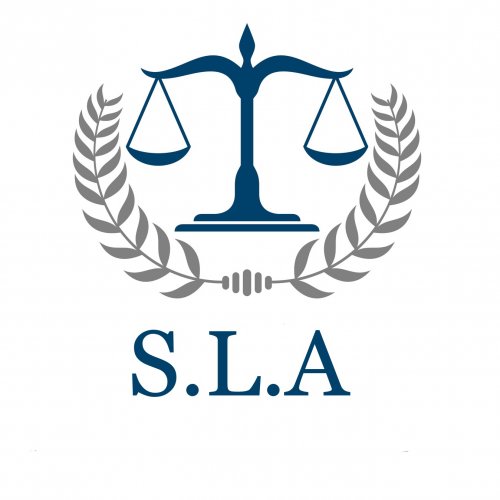Best Collaborative Law Lawyers in Lahore
Share your needs with us, get contacted by law firms.
Free. Takes 2 min.
Free Guide to Hiring a Family Lawyer
List of the best lawyers in Lahore, Pakistan
About Collaborative Law in Lahore, Pakistan
Collaborative Law is a legal process in Lahore, Pakistan, that aims to resolve disputes in a non-adversarial manner. It is a voluntary and confidential method of dispute resolution where parties work together with their respective legal representatives to reach mutually beneficial solutions.
Why You May Need a Lawyer
There are various situations in Collaborative Law where you may need the guidance and assistance of a lawyer. Some common scenarios include:
- Divorce or separation
- Child custody or visitation arrangements
- Property division disputes
- Financial matters, such as spousal support or asset division
- Disputes arising in family-owned businesses
Local Laws Overview
When practicing Collaborative Law in Lahore, Pakistan, it's essential to be aware of the following key aspects of the local laws:
- Collaborative Law is not yet recognized as a separate legal framework in Lahore.
- However, parties are allowed to pursue Collaborative Law as an alternative method of dispute resolution.
- Any settlement agreements reached through the collaborative process can be submitted to the court for approval and made into a court order.
Frequently Asked Questions
1. Is Collaborative Law legally binding in Lahore, Pakistan?
While Collaborative Law is not legally binding in Lahore, any agreements reached can be formalized and made legally binding through the court.
2. Are court proceedings necessary when using Collaborative Law?
No, court proceedings are not necessary if parties successfully reach an agreement through the Collaborative Law process. However, court involvement may be required for final approval.
3. Do both parties need to hire a lawyer?
Yes, each party is encouraged to have their own lawyer who specializes in Collaborative Law to ensure their interests are properly represented throughout the process.
4. How long does the Collaborative Law process typically take?
The duration of the Collaborative Law process varies depending on the complexity of the case and the willingness of the parties to cooperate. It can range from a few weeks to several months.
5. Can the collaborative process be used for business disputes?
Yes, Collaborative Law can be utilized for business disputes, including those within family-owned businesses. The process encourages open communication and finding creative solutions that preserve relationships.
Additional Resources
For further information and assistance regarding Collaborative Law in Lahore, Pakistan, consider contacting the following resources:
- Lahore High Court
- Punjab Bar Council
- Punjab Judicial Academy
- Collaborative Practice Lahore (local organization)
Next Steps
If you require legal assistance in Collaborative Law in Lahore, Pakistan, the following steps can be helpful:
- Research and identify lawyers in Lahore who specialize in Collaborative Law.
- Arrange consultations with potential lawyers to discuss your case and assess compatibility.
- Engage the services of a lawyer who understands your needs and is experienced in Collaborative Law.
- Initiate the Collaborative Law process and work towards resolving your dispute amicably with the assistance of your lawyer.
- If an agreement is reached, submit it to the court for approval and enforcement.
Lawzana helps you find the best lawyers and law firms in Lahore through a curated and pre-screened list of qualified legal professionals. Our platform offers rankings and detailed profiles of attorneys and law firms, allowing you to compare based on practice areas, including Collaborative Law, experience, and client feedback.
Each profile includes a description of the firm's areas of practice, client reviews, team members and partners, year of establishment, spoken languages, office locations, contact information, social media presence, and any published articles or resources. Most firms on our platform speak English and are experienced in both local and international legal matters.
Get a quote from top-rated law firms in Lahore, Pakistan — quickly, securely, and without unnecessary hassle.
Disclaimer:
The information provided on this page is for general informational purposes only and does not constitute legal advice. While we strive to ensure the accuracy and relevance of the content, legal information may change over time, and interpretations of the law can vary. You should always consult with a qualified legal professional for advice specific to your situation.
We disclaim all liability for actions taken or not taken based on the content of this page. If you believe any information is incorrect or outdated, please contact us, and we will review and update it where appropriate.

















